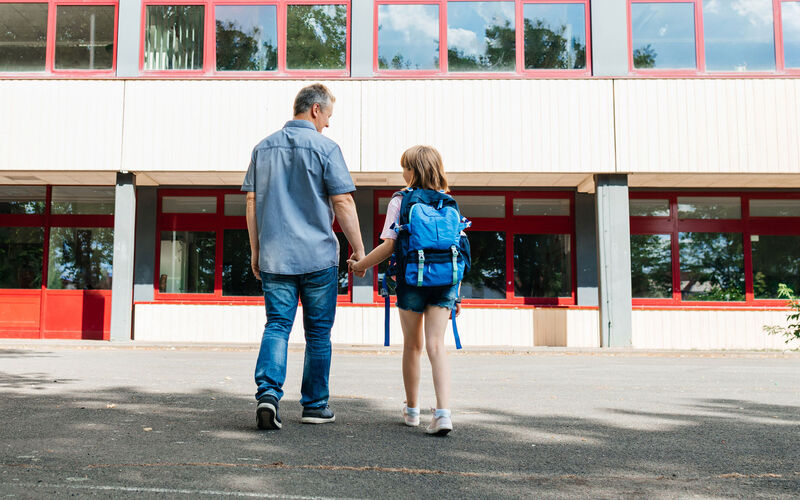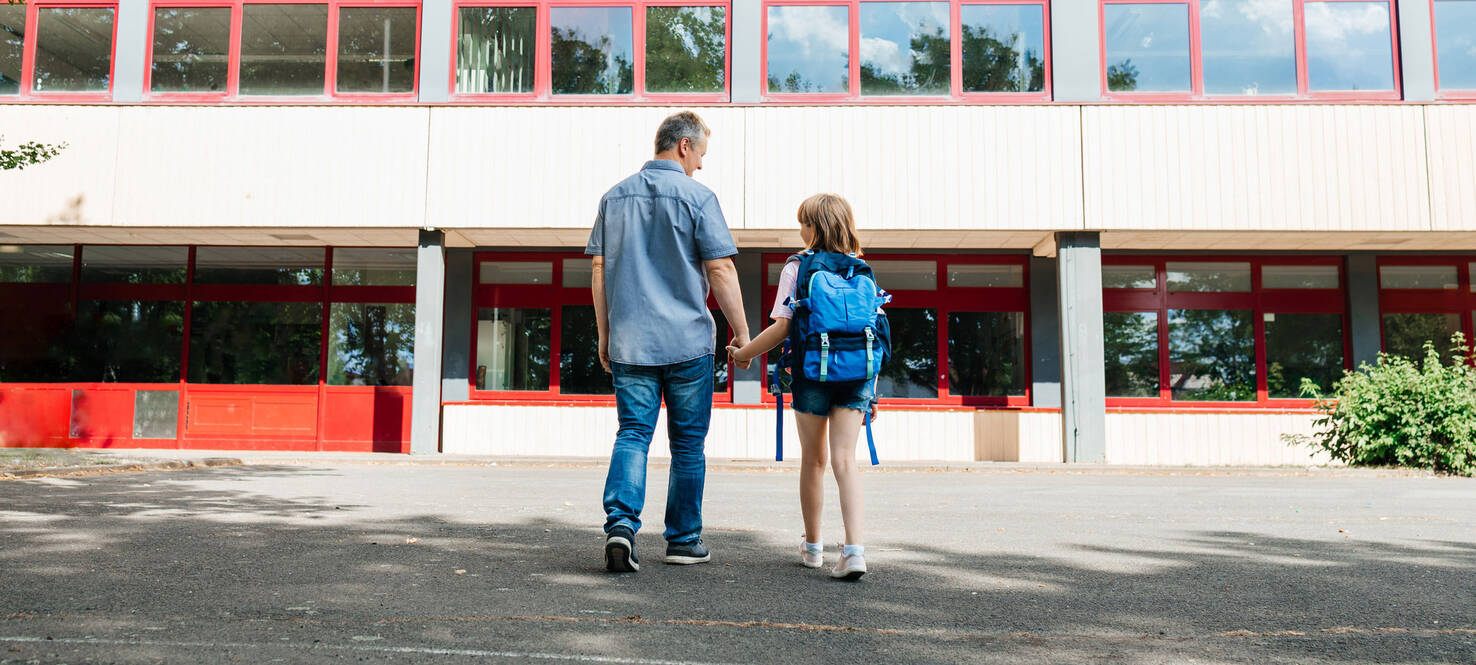Making Back-to-School Easier for Families Facing Cancer
Back-to-school season can bring excitement and stress, especially for families coping with cancer. The return of daily routines, supply lists and after-school activities often clashes with treatment schedules, side effects and emotional fatigue.
Kori Hatfield, a clinical social worker at Moffitt Cancer Center, offers guidance on how families can manage the back-to-school transition while coping with cancer.
Communication Is Key
Children thrive on routine. When cancer disrupts their schedule, it can cause confusion and anxiety. Explain changes clearly, such as when fatigue or appointments affect pickups. Use visual tools like calendars to help kids prepare and adjust.
“Even when routines shift, open communication gives children a sense of safety and predictability,” Hatfield said.
Let them make small choices, such as picking an after-school activity, to give them a sense of control. If another caregiver is helping, introduce them ahead of time and explain their role.
Work With the School
Inform teachers, counselors or other trusted staff about your family’s situation. You don’t need to share everything — just enough to provide helpful context.
“School staff can be extra eyes and ears, helping to notice when a child might need more support,” Hatfield said.
Designate one point of contact at the school to streamline updates. Ask about access to supplies, aftercare or social-emotional resources. You might also work with staff to create a signal system for your child to use when they need a break or quiet support.
Accept and Ask for Help
Asking for help isn’t weakness. It’s part of caring for your family.
“Support systems often want to help but don’t know how. Being specific makes it easier for everyone,” Hatfield said.
Support can take many forms:
- Rides to and from school or treatment
- Meals delivered or arranged through a meal train
- Child care during appointments or recovery time
- Help with chores like laundry, dishes or yard work
- Emotional check-ins for you or your children
Even long-distance friends can assist with phone calls, scheduling and online tasks.
Build Coping Into the Routine
Daily stress-reducing habits, like breathing exercises or short walks, can help both kids and parents.
Families First hosts events where families connect with others facing similar challenges. Activities often include creative ways to teach and practice coping skills.
Tap Into Community Resources
Moffitt social workers are available to provide personalized guidance. Call 813-745-8407 to connect with the Families First program.
Other helpful resources include:
- Triage Cancer: Nonprofit organization that provides free education, webinars and practical tools on the legal and practical issues that arise after a cancer diagnosis
- Bright Spot Network: Offers young cancer survivors who are parents of young children with a safe space for individual and family healing, including school communication guides and parenting resources
- CancerCare: Provides free professional support services to help manage the emotional, practical and financial challenges of cancer Support for schools and families affected by cancer
- United Way: Dial 2-1-1 for local help with supplies, services and support
You’re Not Alone
Cancer adds complexity to every part of life, but support is available. With clear communication, practical help and thoughtful planning, families can regain a sense of balance and resilience.




